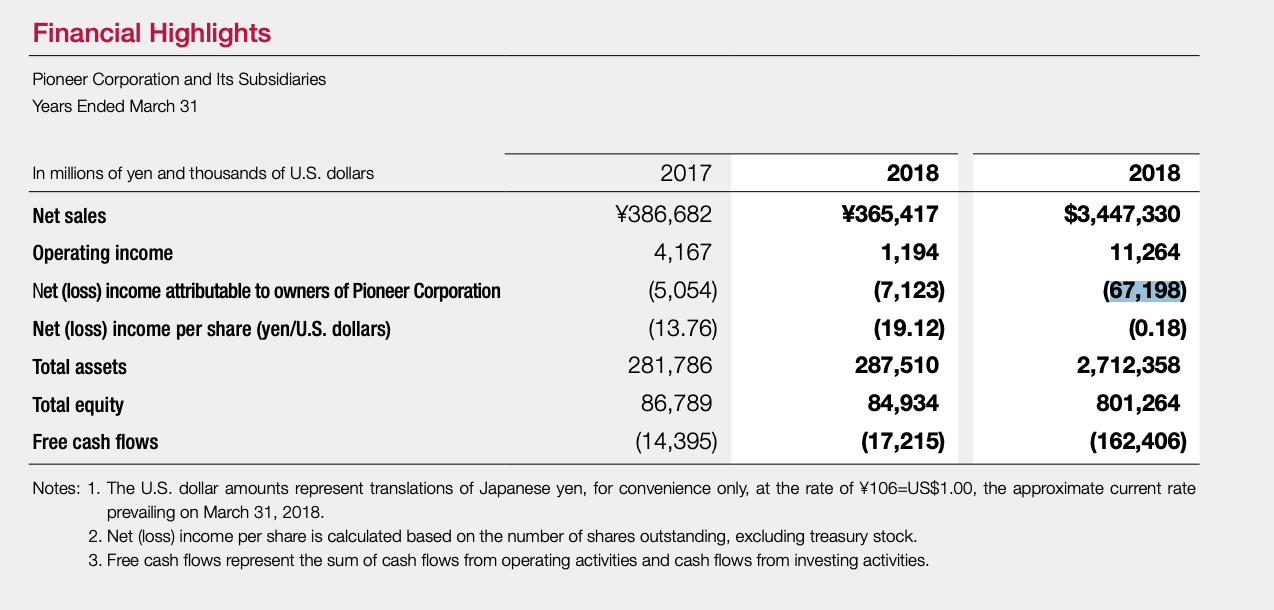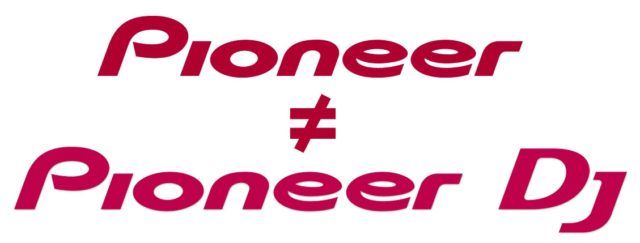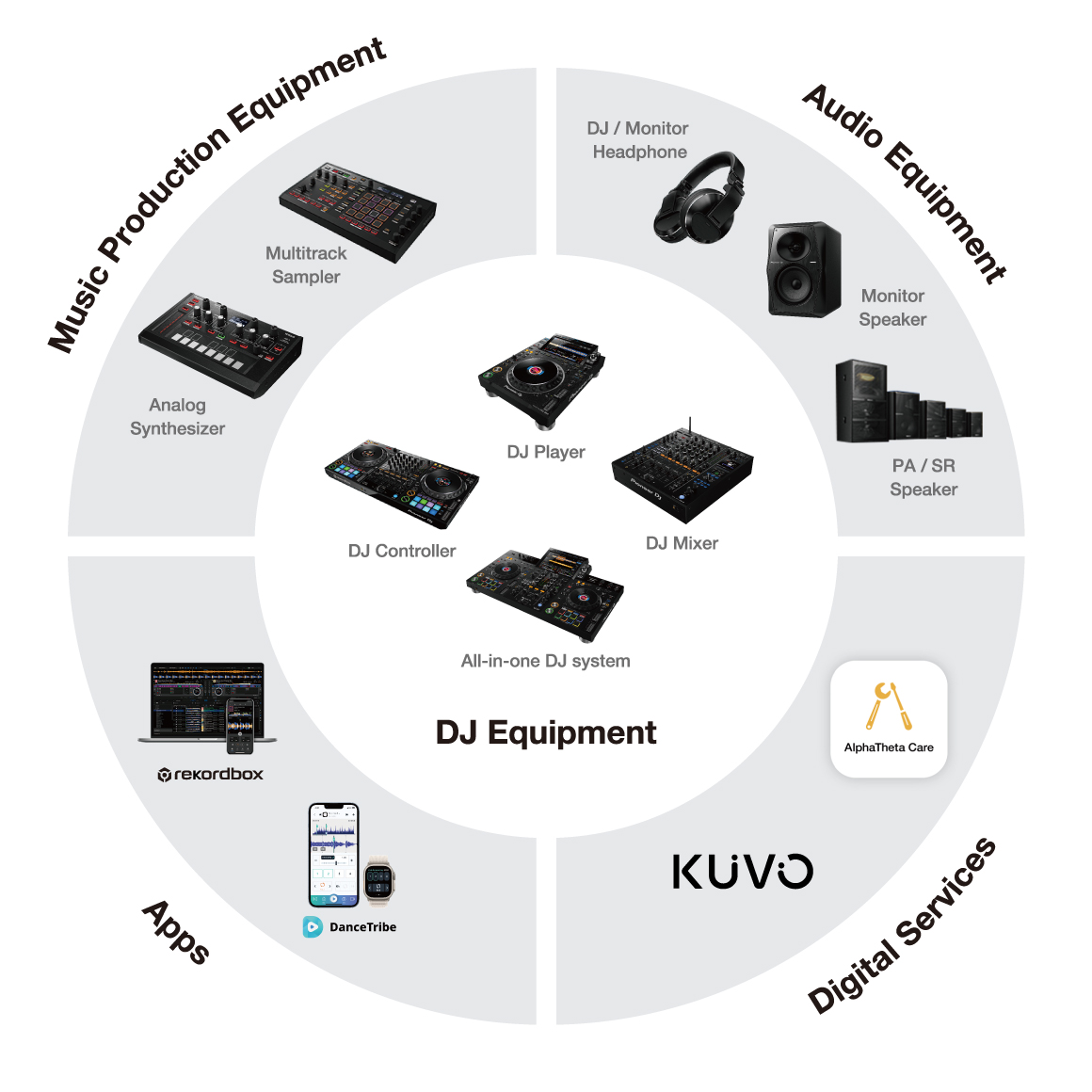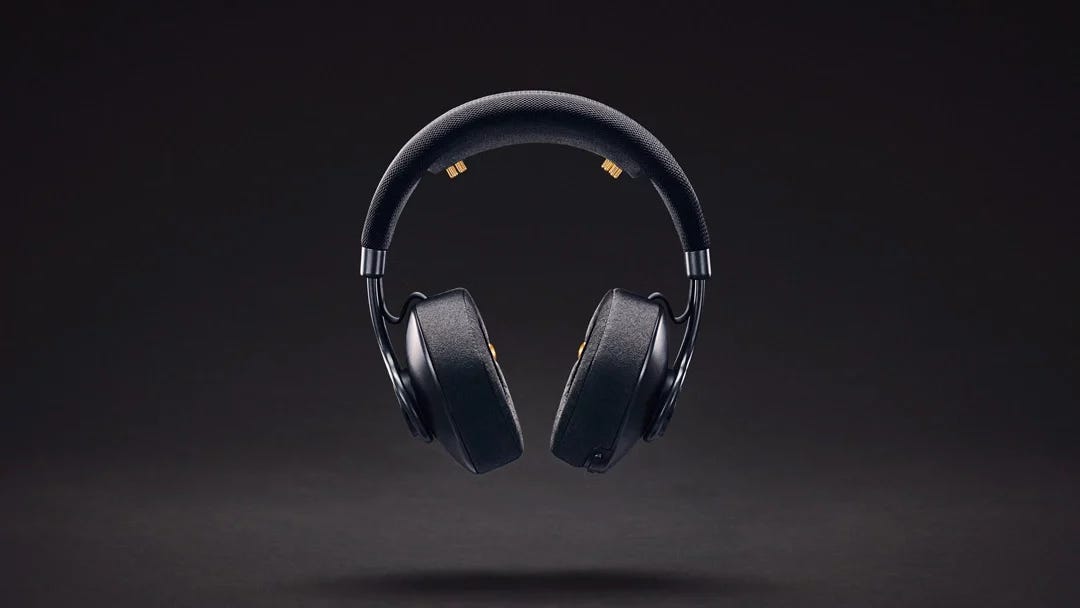Pioneer DJ to AlphaTheta: 8 theories behind this huge brand name change – DJ TechTools
You might have noticed quite a bit of chatter today on the web about Pioneer DJ “changing their name” to AlphaTheta. They posted a few slides on instagram that outline how that they plan to announce new products (likely this week since it’s NAMM week) under the brand AlphaTheta.
They’re still going to keep making products as Pioneer DJ (although we’ve seen no confirmation that they will be releasing any new products as Pioneer DJ, it could just be that they’re continuing to produce current Pioneer DJ branded models).
A quick Pioneer DJ history primer
To be clear at the outset: Pioneer DJ is a brand that has sat under AlphaTheta Corporation’s name since January 1st, 2020. The company then sold in March 2020 from investment firm KKR to Noritsu, a Japanese holding company that also makes photo processors.
Before it was owned by KKR, it was owned by Pioneer (famous for many consumer electronics throughout the years, including home audio, car audio, TVs, and more.) Pioneer sold their DJ division to KKR in 2014 for $551 million.
So – why would AlphaTheta management make such a big deal out of releasing new products as AlphaTheta instead of Pioneer DJ? While commenters on their post have been confused about the reasoning, the people behind the decision clearly have what they think is a good reason to do so. I decided to come up with as many reasonable explanations as possible in this quick piece.
Name Licensing? 10 Years Since Pioneer split off Pioneer DJ

It’s been exactly decade since Pioneer DJ got sold off from Pioneer Corporation. 10 years could very easily be the length of time that the new company was allowed to continue using the name in certain contexts, markets, uses, etc. Or, perhaps they have the option to continue using the name for another period of time – but at a higher expense.
Even if they’re allowed to continue using the name Pioneer DJ, perhaps there’s an agreement in place that limits the types of products that can have the word “Pioneer” in them – for instance, the car audio space.
If they want to release products without those types of restrictions, or if they have lost some of the licensing rights after 10 years to include “Pioneer” in new product names, now would be the right time to set the stage for that change.
Association with Pioneer Corporation’s Business Challenges
If you look at the final annual report from Pioneer Corporation (again, not AlphaTheta/Pioneer DJ) before they became a privately held company, it’s not great:

Pioneer Corporation then got sold off the next year (2019) largely as a bailout – at the time of that transaction, they were carrying $443 million of interest-bearing debt. While their new private equity owners might be working hard to turn the brand around, the name “Pioneer” might not be closely associated with “business success” recently, particularly in Japan.
DJs never called it Pioneer DJ

This one is a bit more personal. I can’t count the number of times in the last ten years that DJs and our industry have simply continued to call the company “Pioneer”. It’s easier to refer to it quickly that way, and so many DJs simply say “I have a Pioneer setup”. People do the same thing with Denon DJ’s gear – simply saying “I use the Denon Prime Go” instead of saying the whole brand name. DJ might be useful from a branding perspective in a name, but to DJs, it was superfluous.
Think about when you’re referring to a piece of gear: do you think of the “CDJ-3000” or the “Pioneer DJ CDJ-3000”? I think we all know that the product name in many contexts is far more important. Many DJs even just say “I use Rekordbox” – which might even be a better overall brand name for their DJ products, anyway.
Worth noting, AlphaTheta isn’t much better as a quick-and-fast name – it’s four syllables, fewer than “Pioneer DJ”‘s five and more than “Pioneer”‘s three.
Expanding the Product Range Beyond DJs
If AlphaTheta wants to broaden its product lineup beyond DJ equipment, the new name could help to signify this expansion. Think about the other attempts to broaden out their brands through new names like TORAIZ, WeDJ, and Rekordbox – they’re all attempts to create new associations with their products. AlphaTheta doesn’t carry the specific connotation of DJ equipment, allowing the brand to encompass a wider range of audio or music-related products – look no further than this graphic from their new website:

Their Instagram post even spells it out a bit more explicitly: “AlphaTheta embraces diversity and inclusion, and celebrates the playfulness of DJing and producing music” – the subtext here is that the current name, Pioneer DJ doesn’t actually include music producers even when the product might be a good fit for them.
Their New Owners, including Serato DJ, and the acquisition
There’s not doubt that corporate restructuring is underway at AlphaTheta. As I’ve already noted, they were bought by Noritsu in 2020. Their new owners could very much want a fresh start that allows them to have their own identity integrated into the business.
And don’t forget, there’s currently a pending acquisition of Serato that’s waiting in the courts in New Zealand right now. For a company with it’s own very strong brand identity, Serato staff and products might have an easier time integrating into a company that is not so explicitly “Pioneer DJ”.
I suspect there could be even more here with regards to the acquisition. While I’m in no way a lawyer, perhaps AlphaTheta feels less market-dominant, and could be less easily construed as a monopoly in the DJ industry since they’re in a ton of different types of business that spans beyond it.
AlphaTheta (might) sound better in Japanese / makes more sense linguistically
Ok – Here’s a bit of an odd one. I’ve had a pet theory since the introduction of the AlphaTheta name in 2019 that the name Pioneer DJ simply isn’t that great of a universal name, especially for a Japanese corporation. I don’t know very much Japanese, so I thought I would ask ChatGPT to analyze my theory and – without hallucinating – attempt to figure out how valid it might or might not be. Here’s the four points it brought up:
- Syllabic Structure: The Japanese language predominantly uses a syllabic script (kana) which consists of sounds that typically follow a consonant-vowel structure. For example, the syllables in Japanese are like “ka”, “shi”, “mi”, “te”, etc. The name “AlphaTheta” breaks down into syllables that fit this structure fairly well (e.g., “A-ru-fa-Se-ta” in Katakana). This makes it relatively easy for Japanese speakers to pronounce.
- Adaptation of Foreign Words: In Japanese, foreign words are adapted into the phonetic constraints of the language using a script called Katakana. Words like “Pioneer” and “DJ” would be adapted as “?????” (Pai-oni-a) and “??????” (Di-ji-e). While these adaptations are familiar to Japanese speakers, they don’t always preserve the original sound perfectly. “AlphaTheta”, on the other hand, might retain more of its original pronunciation even after adaptation.
- Absence of Certain Sounds: Some sounds in English don’t exist in Japanese, which can make certain words more challenging to pronounce. For example, the “r” sound in “Pioneer” is somewhat different from any sounds in Japanese, potentially making it slightly more challenging to pronounce accurately for some Japanese speakers. “AlphaTheta” doesn’t have such sounds that are particularly difficult for Japanese pronunciation.
- Familiarity with Greek Letters: Japanese education includes study of Greek letters, especially in scientific and mathematical contexts. As such, the names “Alpha” and “Theta” might be familiar to many Japanese people, aiding in ease of pronunciation and recognition.
Perhaps there’s something to this – any Japanese-fluent folks out there willing to audit this analysis?
Something far more cutting-edge is coming?
Did you notice that in their name explanation, they say, “The name AlphaTheta directly refers to the brain wave frequencies achieved in optimal performance”? I’m a big fan of performers finding flow state, and while I think that’s what is being referred to here, it could be something more advanced. What if they released products that were actually capable of enhancing and training flow states for artists? That would absolutely be far beyond the scope of the Pioneer DJ name.

Products that measure and give feedback on your brainwaves – including alpha and theta waves – are called neurofeedback devices. Wearable neurofeedback headsets have actually become fairly common in the last few years – with devices like Muse, Flowtime, and Enophone all making it to market.
Does this mean AlphaTheta wants to be in the neurofeedback / biohacking world? Not necessarily, but their name would certainly allow it.
They want to be first in the phonebook
What, you didn’t think phone books still matter? Ok, they largely don’t, but back in the pre-internet days this was a pretty common reason for companies to have a name that started with the letter A. Not sure that there’s much reason for alphabetical focus in brand naming in 2024, but I thought I’d bring this one up for fun.
Alright, that’s it for my speculative time.
What do you think is behind the big move to AlphaTheta?
Share your thoughts below.

